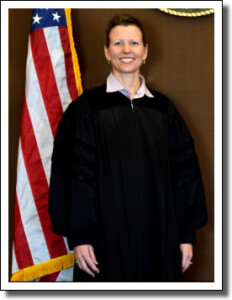Appeal Sought as Judge Rules Records Act Excludes Penalties
 (APN) ATLANTA — The accountability of city, county, school board, and state agency officials to respond to open records requests from Georgia citizens now hangs in the balance, as a major enforcement provision of the Georgia Open Records Act was found to be unavailable to Georgia citizens by a Fulton County Superior Court Judge, the Hon. Kelly Lee Ellerbe, in a Feb. 17, 2021 ruling.
(APN) ATLANTA — The accountability of city, county, school board, and state agency officials to respond to open records requests from Georgia citizens now hangs in the balance, as a major enforcement provision of the Georgia Open Records Act was found to be unavailable to Georgia citizens by a Fulton County Superior Court Judge, the Hon. Kelly Lee Ellerbe, in a Feb. 17, 2021 ruling.
APN’s News Editor, the present writer, is the plaintiff in the case and is representing himself pro se; and on Feb. 25, 2021 filed a Petition with the Court of Appeals of Georgia for an immediate review, Case A21I0147.
https://drive.google.com/file/d/17i4b37xWi5VP56o5JRtX4qaHxsmhGB6_/view?usp=sharing
Judge Ellerbe ruled that the decision should immediately be reviewed: “I do hereby certify that such order is of such importance that immediate review should be had by the appropriate court.”
In 2012, the Georgia Legislature added the civil penalty provisions at the same time to both the Georgia Open Meetings Act and the Georgia Open Records Act by way of HB 397, which were intended to give the average person a means to hold officials accountable for fulfilling their obligations under the Acts.
The civil penalty provision reads as follows: “Alternatively, a civil penalty may be imposed by the court in any civil action brought pursuant to this article against any person who negligently violates the terms of this article in an amount not to exceed $1,000.00 for the first violation.”
The provision continues: “A civil penalty or criminal fine not to exceed $2,500.00 per violation may be imposed for each additional violation that the violator commits within a 12 month period from the date the first penalty or fine was imposed.”
 On March 13, 2020, the Supreme Court of Georgia upheld the civil penalty provision under the Georgia Open Meetings Act in Williams v. DeKalb County, although not addressing the nearly identical provision in the Records Act.
On March 13, 2020, the Supreme Court of Georgia upheld the civil penalty provision under the Georgia Open Meetings Act in Williams v. DeKalb County, although not addressing the nearly identical provision in the Records Act.
https://casetext.com/case/williams-v-dekalb-cnty-1
Dr. Ed Williams had brought the case against the Board of Commissioners of DeKalb County for failing to publish an upcoming vote on the meeting agenda.
The Supreme Court of Georgia found that civil penalties can be sought by any person under the Meetings Act, that they are to be sought against the official who violated the Act in their personal capacity, and that the thousand dollars is payable to the complainant.
However, Judge Ellerbe ruled that slight differences in the text of the two Acts mean that civil penalties are available to any person under the Meetings Act, but that they can only be brought by the Attorney General, Chris Carr, under the Records Act.
Some disagree. “Based on my reading of both provisions, it is my conclusion that the intention of the legislation is the same in both Acts,” Ed Williams told Atlanta Progressive News in an interview.
“Civil penalties are important because you have to have some mechanism to deter this kind of behavior in the future against the violators. If you don’t have that, then there’s nothing to persuade the violators from doing the same thing over again. That’s why that’s important,” Williams said.
 State Rep. Viola Davis (D-Stone Mountain) has introduced legislation, HB 167, to address several apparent abuses of both the Records Act and Meetings Act by the City of Atlanta.
State Rep. Viola Davis (D-Stone Mountain) has introduced legislation, HB 167, to address several apparent abuses of both the Records Act and Meetings Act by the City of Atlanta.
https://www.legis.ga.gov/legislation/59089
State Rep. Davis has submitted a substitute to HB 167 in order to address the Feb. 17, 2021 ruling of Judge Ellerbe on civil penalties.
“I believe the civil penalties are important because it’s one enforcement tool that will make local government adhere to the Open Records Act and Open Meetings Act,” Rep. Davis told APN.
“I believe overall that civil penalties need to be across the board. The civil penalties that are presently within the law are far too low for there to be true enforcement of the law,” Rep. Davis said.
“In my opinion, the law was intended to provide for civil penalties, and I think the ruling in Dr. Williams’s case solidifies that. So when I speak about across the board, I don’t agree with your ruling [Judge Ellerbe’s ruling in APN Editor’s case],” she said.
“With us updating the Open Records Act through legislation, that would make it clearer and no doubts.”
Because the ruling allowed two civil penalty claims under the Georgia Open Meetings Act to go forward against Atlanta City Councilman Matt Westmoreland (Post 2-at-large) and Atlanta City Councilwoman Jennifer Ide (District 6), there would normally be no opportunity to appeal the Feb. 17, 2021 ruling until the meetings claims are resolved.
Thus, if the Court of Appeals of Georgia grants the petition for immediate review on the civil penalties/open records issue, it would essentially be an early appeal.
The case, Matthew Charles Cardinale v. City of Atlanta, et al., 2020-CV-332834, was filed on Feb. 07, 2020, just slightly more than one year prior to the recent ruling.
In the ruling, Judge Ellerbe dismissed two claims for one thousand dollar civil penalties under the Georgia Open Records Act, O.C.G.A. 50-18-70 et seq.
One of the two claims was brought against Michael Smith, Mayor Keisha Lance Bottoms’s Press Secretary, for failing to respond to a Feb. 08, 2020 records request, in which APN’s News Editor sought a signed copy of the City of Atlanta’s 2009 Cable Franchise Agreement with Comcast.
The second of the two claims was brought against now-former Senior Supervisory City Attorney Alisha Irene Wyatt-Bullman, for apparently making a deceptive response on behalf of the City of Atlanta to the Feb. 08, 2020 request.
Wyatt-Bullman claimed the signed contract could not be located after a diligent search, but the City Auditor Amanda Noble revealed that the Law Department actually had the document.
Judge Ellerbe ruled last year that APN’s News Editor could add both Smith and Wyatt-Bullman as defendants, as reported at the time by WSBTV Channel 2 television news.
See also a recent article about the litigation by columnist Bill Torpy:
Thus, the Feb. 17, 2021 ruling reversed the previous position that civil penalties could be sought against Smith and Wyatt-Bullman under the Records Act.
Similarly, Judge Ellerbe also rejected a motion to add a civil penalty claim against Senior City Attorney Amber Ali Robinson for withholding records that do not appear to be covered by the exemptions claimed by Robinson. This part of the ruling was also on the basis that civil penalties can only be sought under the Records Act by the Attorney General.
State Rep. Davis and Dr. Williams agree that Attorney General Chris Carr’s Office cannot, or will not, fully enforce through civil penalties the records violations occurring every week across the State of Georgia.
A series of spreadsheets obtained by APN shows that there are literally hundreds of records and meetings complaints logged since 2012 by the Attorney General’s Office.
“The case load is too great for the AG’s office based on past history,” Williams said.
(END / Copyright Atlanta Progressive News / 2021)